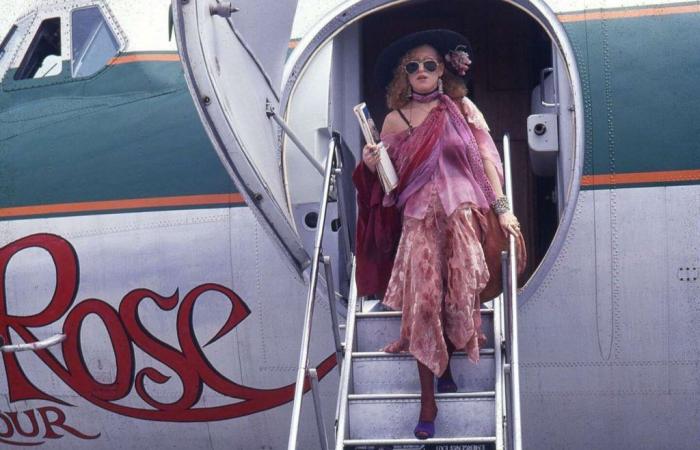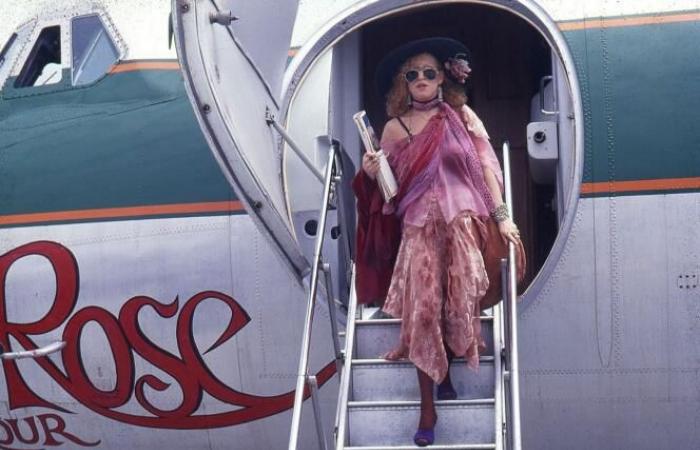TCM CINÉMA – THURSDAY JUNE 20 AT 8:50 P.M. – FILM
We are still waiting for the filmed biography of Janis Joplin promised by Hollywood since her death on October 4, 1970, at the age of 27. There is perhaps a very simple reason for this impotence: it has already inspired a film, The Rose, by Mark Rydell, in which Bette Midler plays a southern singer, caught up in the hippie revolution and show business, crushed by fame and addictions.
This beautiful film should have been called “Pearl”, Janis Joplin’s nickname (and title of her final album). When his family refused to grant the rights to his biography, the screenwriters unscrupulously distanced themselves from reality. Hence this incongruous, but fruitful, confrontation between the figures of Hollywood melodrama and rock culture.
Mary Rose Foster (Bette Midler) is at the height of her fame. She moves crowds to her concerts, sells records by the hundreds of thousands. In the hands of a British manager obsessed with the evanescence of glory (Alan Bates), Rose – as her worshipers call her – is forced to work like hell. To support it, she can, since she has money, since she represents a generation which no longer observes the law, resort to the most expensive, the most illicit substances.
Tragic Diva
We know that it will all end very badly, nonetheless: we begin to dream that Rose will escape her destiny, in the arms of a driver who could lead her to salvation (Frederic Forrest). It is the marvel of this film to have transformed Bette Midler – a cabaret singer, who had already taken artifice to a hilarious and exhilarating degree of sophistication – into a poor thing who blares the blues to stay alive .
In 1978, during the filming of The RoseBette Midler is a star thanks to shows that first transported the New York gay community – during a visit to a transvestite cabaret imitating Diana Ross, Barbra Streisand and Mary Rose Foster, a sequence from the film Rydell becomes a kind of acknowledgment of debt to these first fans.
Read also | Article reserved for our subscribers Janis Joplin, an absolute demand for non-conformism
Add to your selections
The diva chooses to stick to reality, to abandon herself to the tragedy of the fallen woman, and Bette Midler is overwhelmingly fragile. We see her face break down when she is insulted by a country singer (Harry Dean Stanton, impeccable with pettiness) to whom she has come to pay homage. We see her exult when the crowds flock to the stage to hear her sing, during concert sequences that are almost documentary-like.
The musical supervision of Paul A. Rothchild (1935-1995) completes the illusion of having to deal with a real rock star, who relies on a real repertoire, from which stands out The Rosea somewhat simple ballad that Bette Midler transforms into an elegy to all those young people who did not survive the summer of love.
The Rose, by Mark Rydell. With Bette Midler, Alan Bates, Frederic Forrest (EU, 1979, 2:05 a.m.).







